‘Buffalo Springfield Again’: Behind-the-Scenes
by Harvey Kubernik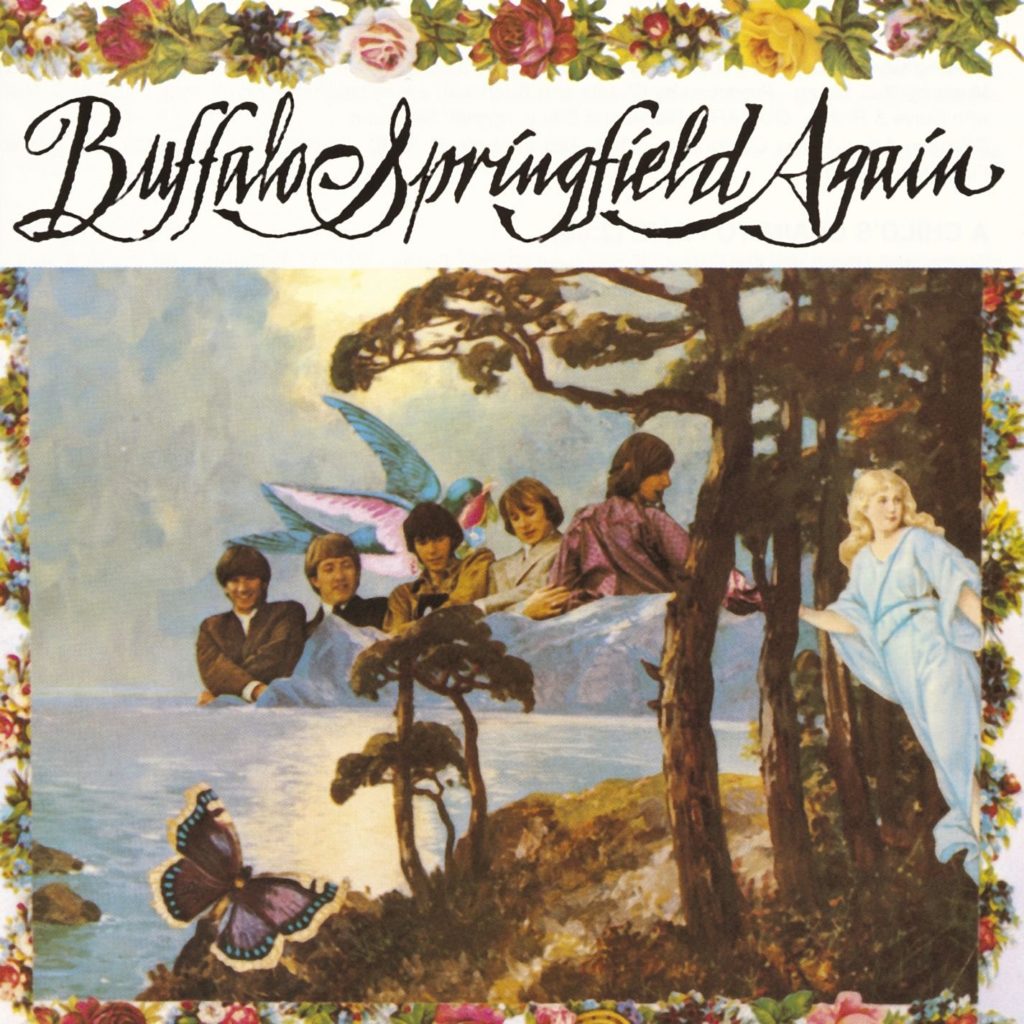 Buffalo Springfield Again, the second album by the highly influential Los Angeles band featuring Stephen Stills, Neil Young, Richie Furay, Bruce Palmer and Dewey Martin, was released in November 1967. It peaked at #44 on the Billboard LPs chart but has had a lasting impact, with such timeless songs as “Mr. Soul,” “Bluebird,” “A Child’s Claim to Fame” and “Expecting to Fly” among its tracks.
Buffalo Springfield Again, the second album by the highly influential Los Angeles band featuring Stephen Stills, Neil Young, Richie Furay, Bruce Palmer and Dewey Martin, was released in November 1967. It peaked at #44 on the Billboard LPs chart but has had a lasting impact, with such timeless songs as “Mr. Soul,” “Bluebird,” “A Child’s Claim to Fame” and “Expecting to Fly” among its tracks.
The album was largely recorded at Columbia and Sunset Sound studios, which had recently been equipped with 8-track tape machines. Buffalo Springfield Again was a defining moment in L.A. music history; like Brian Wilson before them, the Springfield meshed songcraft with new recording techniques, elevating the music to a rarefied state of eloquence.
Over the years I have spoken to several individuals involved with the recording. Here are some of their recollections.
Richie Furay: The first album (Buffalo Springfield) represented the five of us together in the studio. After that it started to fall apart. It got worse with the next two albums. There were a lot of people being used other than the five of us.
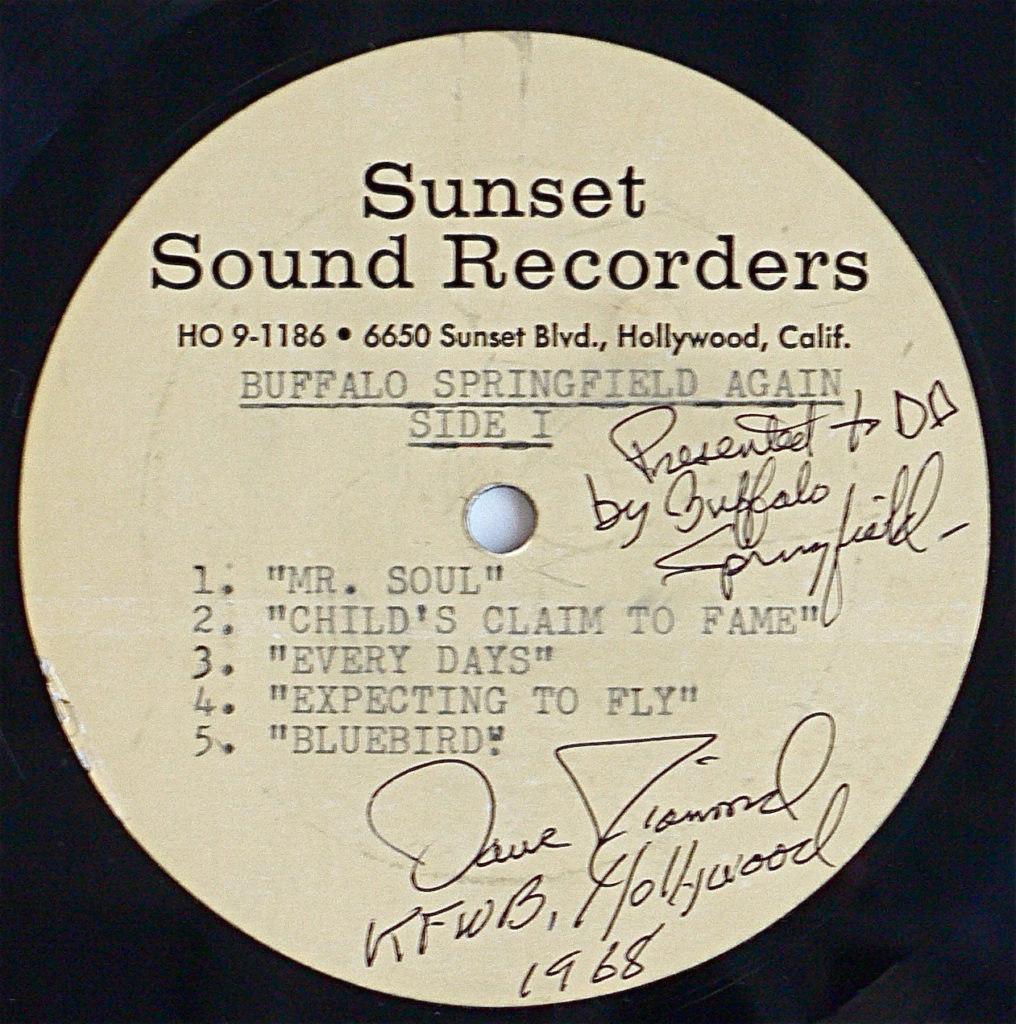 Denny Bruce (musician/producer/manager): In 1967, Neil and the band left Gold Star to do Buffalo Springfield Again. I remember Stephen being outraged that “[Co-producer] Jack Nitzsche was like Yoko Ono f**king with the band.” Neil finally said, “I’m gonna use some other players.” Before the album began, I went up to Neil’s cabin. It was one of those things where you walk in and Neil had his jumbo acoustic 12-string guitar and he’s halfway through a song that turned out to be “Expecting to Fly.” It’s pre-cassette days, and it’s like he doesn’t want to forget where he’s at in this song. So I sit there for a good hour. He kept starting and stopping and trying other chord changes that most musicians wouldn’t go to. There was always a different tuning and Neil was also really good at using various time changes. Neil started talking about “Expecting to Fly” and said, “I hear it as a song for the Everly Brothers.” Jack Nitzsche and I went to over to Neil’s and heard the song and both of us agreed it was great. Then Jack said, “F**k the Everlys. This is for Neil Young. We can make a great record.” Jack also heard “Mr. Soul” and really liked it because it was all about the lyrics. Jack knew Neil would eventually become a solo star.
Denny Bruce (musician/producer/manager): In 1967, Neil and the band left Gold Star to do Buffalo Springfield Again. I remember Stephen being outraged that “[Co-producer] Jack Nitzsche was like Yoko Ono f**king with the band.” Neil finally said, “I’m gonna use some other players.” Before the album began, I went up to Neil’s cabin. It was one of those things where you walk in and Neil had his jumbo acoustic 12-string guitar and he’s halfway through a song that turned out to be “Expecting to Fly.” It’s pre-cassette days, and it’s like he doesn’t want to forget where he’s at in this song. So I sit there for a good hour. He kept starting and stopping and trying other chord changes that most musicians wouldn’t go to. There was always a different tuning and Neil was also really good at using various time changes. Neil started talking about “Expecting to Fly” and said, “I hear it as a song for the Everly Brothers.” Jack Nitzsche and I went to over to Neil’s and heard the song and both of us agreed it was great. Then Jack said, “F**k the Everlys. This is for Neil Young. We can make a great record.” Jack also heard “Mr. Soul” and really liked it because it was all about the lyrics. Jack knew Neil would eventually become a solo star.
Jack Nitzsche: Neil was the beginning of art-rock. This was groundbreaking for me.
Don Randi (pianist): Jack Nitzsche called me to play keyboard on some dates in 1967 at Sunset Sound. I picked out the piano for the studio. I didn’t realize it was for Buffalo Springfield. I thought it was for a Neil Young (solo) album, ’cause he was supposed to be breaking away and going on his own. (Drummer) Hal Blaine and (saxophonist/flutist) Jim Horn are on the track. I played piano and organ. When Jack and Neil asked me to play on the end part of “Broken Arrow,” they were both waving me on to keep playing. I kept looking up at them, “Are you ever gonna tell me to stop?” (Guitarist) Russ Titelman, (bassist) Carol Kaye and (drummer) Jim Gordon are on it. I had some little head chart arrangement to work from and another of the tunes might have been sketched. It was pretty wide open with the chord changes. All you had to do was hear Neil sing it with an acoustic guitar and you sat there, “Oh my goodness.” He was so talented. Jack and Neil were a team and had a mutual admiration society. Recording with them was easy. Neil wrote cinematically and Jack arranged his own records cinematically. Neil was smart enough to know what he wanted and knew how to get it. And Neil had [Atlantic Records president] Ahmet Ertegun in his corner.
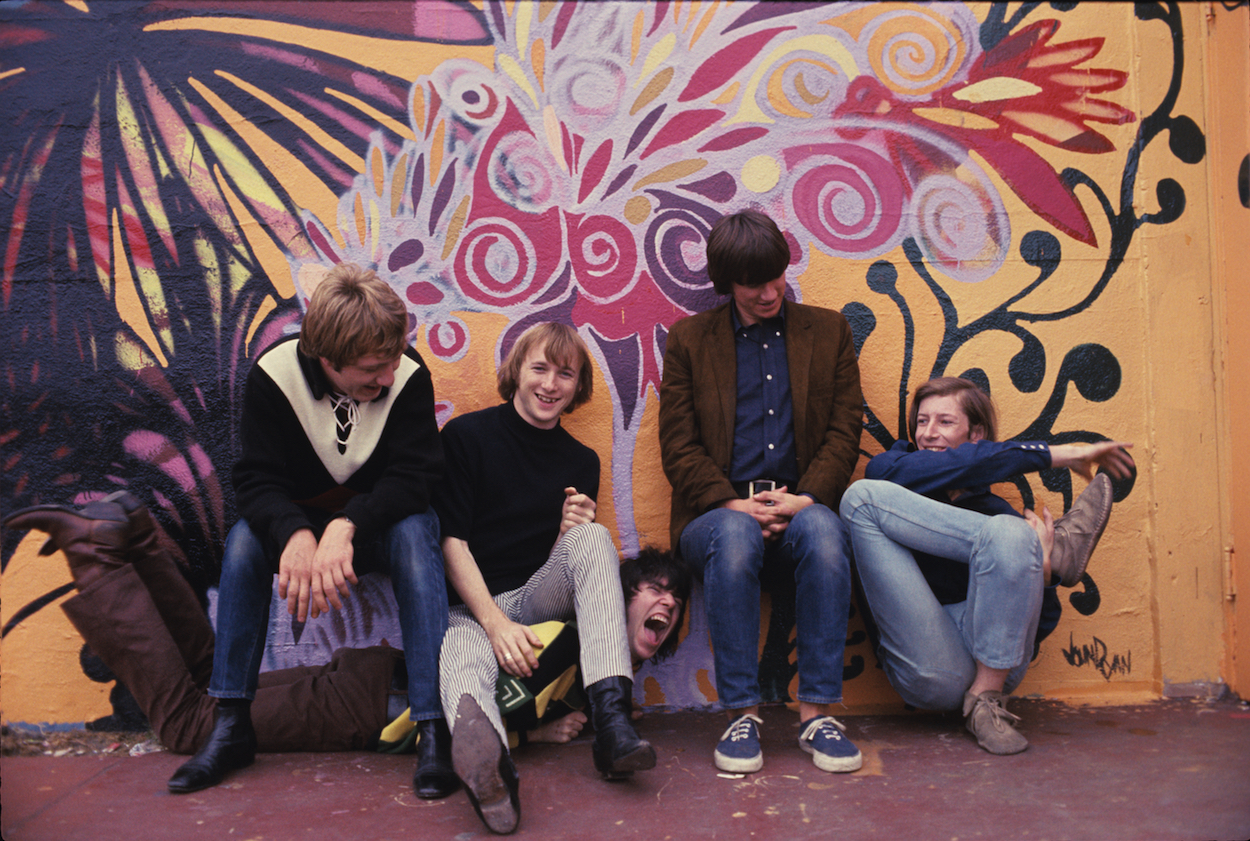
Buffalo Springfield (Photo © Henry Diltz; used with permission)
Bruce Botnick (engineer): Sunset Sound was very unique. Tooti Camarata (one of the designers of the studio) did something that nobody had done in this country: He built an isolation booth for the vocals. That’s one of the things that worked so well for Jack Nitzsche because we were able to put six strings in there and get full isolation live. With the strings being in the large isolation booth, the drums didn’t suffer, so we were able to make tighter and punchier rhythm tracks than any of the other studios in town were able to do. Everybody did everything live in those days. You did your vocals live. You did your strings and your brass live. And the rhythm section. And this was a big deal. Then add to it the amazing echo chamber that Alan Emig designed. It still sounds incredible. On Buffalo Springfield Again, the songs were so strong, and so were the performances. We had two lead guitar players between Stills and Young, two massively prolific writers between the two of them, and there was constant tension between the two, creative tension that would manifest itself in either one of them losing it for a few minutes. And then they would get back together and hug like crazy and do the songs. It was about performance. We’d be recording a song, and Stephen would say to Neil, “Hey, man, I just got a new idea for a song.” Or, “It isn’t finished but what do you think?” And Neil would say, “Hey, that’s great.” This went on constantly.
Rodney Bingenheimer (disc jockey): In ’67 I attended a couple of the recording session for “Expecting To Fly” that Neil was doing with Jack Nitzsche at Sunset Sound and at the Columbia studio. There were some musicians like keyboardist Don Randi and drummer Hal Blaine that were on Neil’s session. That was kind of weird. Those guys weren’t in Buffalo Springfield! I seem to remember a very long version of “Expecting to Fly.”
Related: Another look back at Buffalo Springfield Again
Kim Fowley (producer/musician): I encountered Neil one night outside the Whisky just after Buffalo Springfield Again was issued. I gave him major compliments on his recent recording “Broken Arrow.” Neil looked at me and walked away dismissively, like he didn’t know who I was. He’s great at being Neil Young. He has a radio voice and there’s lots of pathos and emotion in it. And he connects with lonely people. The lonely people buy all the products, because they’re alone. I’ll give Neil Young kudos for having a lifetime career like Bing Crosby and Frank Sinatra. Good for him. He worked hard and deserves all the good things that happened.
Peter Lewis (Moby Grape musician): Buffalo Springfield had a beach house in Malibu around 1967. Moby Grape had one in Malibu at the same time. We were renting [actor] Rod Steiger’s beach house. One day I remember Neil and Stephen walked in and they wanted to borrow this boat that Rod Steiger had. It was a dinghy. This encapsulates their whole relationship. They wanted to grab this boat and go out and get it beyond the shore break. They both climbed in there and then they spent a half an hour on who is going to get to row. And then here comes this wave and sinks the whole thing. I don’t remember if the boat ever got recovered. Nobody from the band went out and got it.
[Author and music journalist Harvey Kubernik’s books are available in the U.S. here, in Canada here and in the U.K. here. Buffalo Springfield’s recordings are available in the U.S./worldwide here, in Canada here and in the U.K. here.]
Watch Neil Young and Stephen Stills perform “Mr. Soul” with Joe Walsh at the 2023 edition of Stills’ “Light Up the Blues” benefit concert

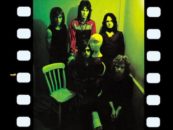
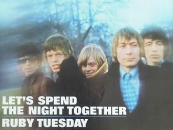
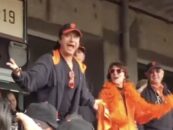
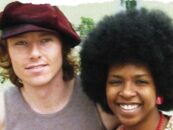

5 Comments so far
Jump into a conversationThis album turned me on to California music. I related to every song. I still feel the same way.
I really enjoyed this article . These days anything written about Buffalo Springfield is about fighting and Neil sabotaging the band . Thank you for giving us a look at the creativity from the inside thru participants memories . The boat story made me smile .
I have never understood the fascination with Neil Young. He has been and continues to be most the overrated musician/singer in rock ‘n roll history. The guy’s voice is whiny and, to my ears, very annoying, and his electric guitar tone is nothing to write home about. Not one of his songs as ever resonated with me. I don’t walk around the house humming any Neil Young songs, but I do that with Stephen Stills’ tunes. I’ll take Stephen Stills over Neil Young any day of the week. To each their own, but I can’t stand Young’s music.
Oh that’s almost as bad as saying the Beatles suck -are you kidding me Neil Young is a musical legend, with countless memorable and classic songs you’re telling me you don’t love the song, heart of Gold, or how about stuff like Ohio and great rockers like like a hurricane Cortez the killer, welfare mothers etc and he’s a very proficient guitarist, one of the best acoustic players ever and unique style of electric guitar playing. I am shocked you have no love for Neil Young. The guy is a prolific artist and will go down in history as one of the great musical geniuses.
This article is really about Neil Young and not much about Buffalo Springfield or the album. Richie Furay is hardly mentioned. And who played on the non-Neil songs? Was that the whole band? Anyway Neil did the same on “Deja Vu” producing his own songs without the other band members.